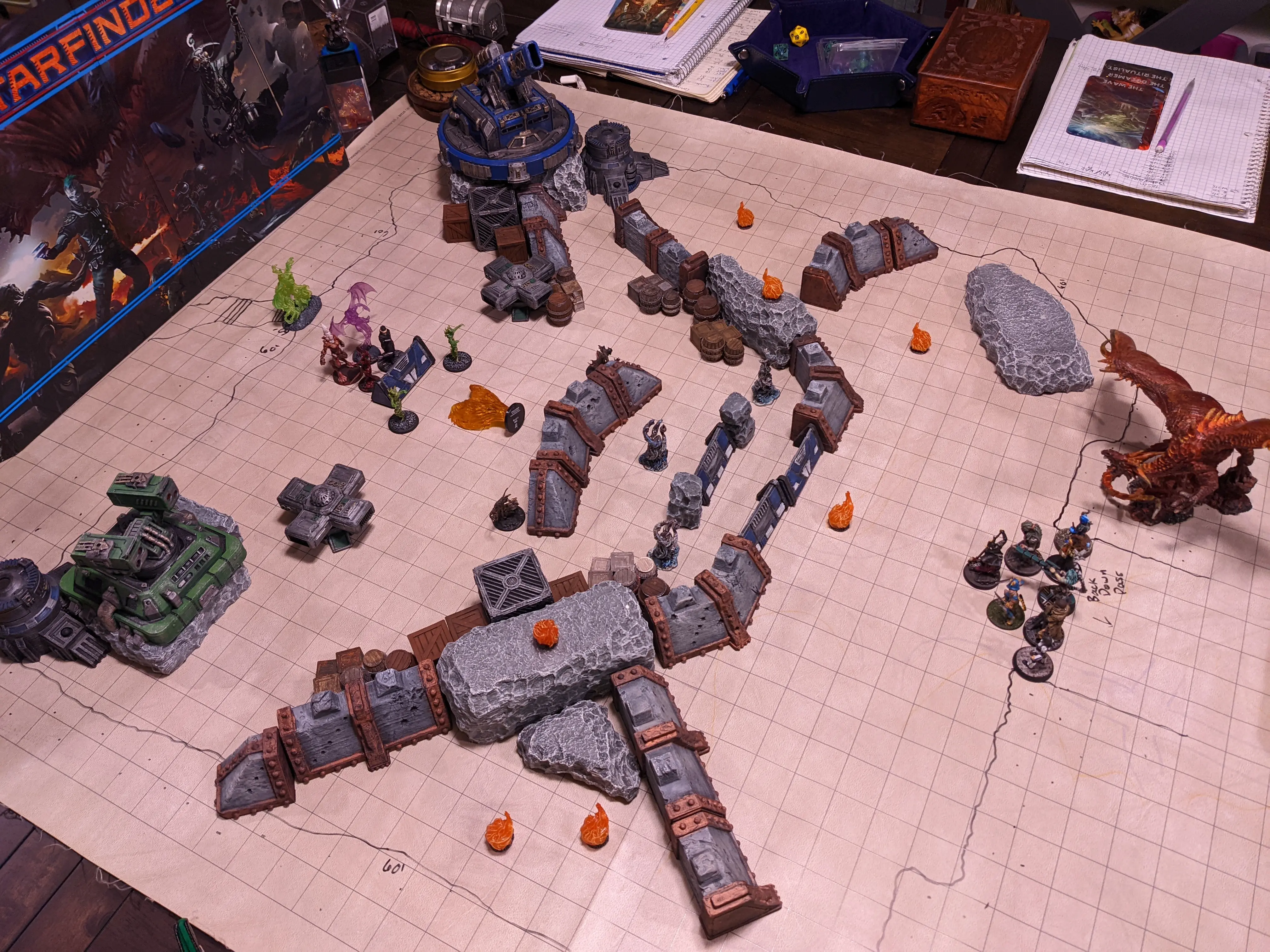This past weekend I played 10 hours of Starfinder with my friends across two separate sessions, I am scheduled for a 4-hour finale on Thursday evening, and I have another game in a completely separate D&D 5E campaign this Saturday. Needless to say, tabletop roleplaying games (TTRPGs) have been on my mind lately.

I've also been back at the office 2-3 days a week, and collaborating with my teammates in person — if you can believe it, we used an actual whiteboard! A ritual so mythical to me at this point, that it belongs in D&D more than my work life. But it's in the mashup of these events — coding by day, D&D by night — that I've come to fully appreciate something you've likely read in dozens of catchy business articles, but which to me is still profound:
What's good at the table is what's good at the desk.
No, But...
When acting as the gamemaster (henceforth simplified as GM), there's a lot we can take away from the formal disciplines of storytelling and improv. Both give this same advice, but in a slightly different context — try to follow a "Yes" with "And", and if you have to say "No", follow it up with "But".
No, you cannot seduce the raging demon into abandoning his centuries-long plot to destroy the heavens. But you might be able to seduce the cultist trying to summon him, and distract him long enough for your friends to foil the ritual. Yes you have killed the wizard, and now the magics holding his lair together have faded, and the tower is crumbling around you!
In my humble opinion, getting this right is one of the first steps in being a good GM, because it keeps the story engaging for the players. But the real magic happens when you start to rope in your players, or (ideally) when they do it among themselves.
No, you can't pull that rusty lever down by yourself, but if you regroup with the party, one of them might be able to help you. Yes, you now know the dragon's weakness, and if you shout it out to your friends, I'll give them a +2 on the attack.
What I'm describing here is a form of collaborative storytelling — where two or more people work together, bouncing back and forth between events, to tell a story. While this happens innately anytime you sit down to play a TTRPG, the quality of the back-and-forth will vary from table to table, and I think it's a key indicator of what makes a session great.
Bringing Your Dice Brain to Work
I think my previous point also applies to the workplace: while collaboration happens innately anytime you form up a team (ideally 4-6 people, also the sweet spot for a gaming table) the quality of collaboration will vary.
Great collaboration is not two or more people pushing code changes to the same repository. It's that same group of people working together on a philosophical level — exchanging ideas via healthy debates and info sessions, and deciding on not just the tech stack, but the spirit of what you're all trying to achieve. It's about sharing both the blame and the credit, and it's about admitting what you can't do, and putting your trust in the team.
I don't know, but Jane does. Yes, my team can help you with that, and you're in luck, because John is an expert. No, I don't think Typescript is the answer for this application, but I want to hear your thoughts.
I think we've all been on a team where the second half of all the sentences in the above paragraph were missing. Where the subject of the sentence is the all-possessive me, and the story begins and ends there. It's damn subtle, but once I started paying attention to it, it changed how I look at the team dynamic. For me, it's what differentiates "power teams" from product teams, and when looking back, is a great summation of why I've left teams in the past.
Tell a Story About "We", Not "Me"
You don't need to be a roleplaying guru or an improv veteran to start applying this principle to your day job. When you unmute yourself on that Zoom call (even though 90% of the people in the meeting are now adjacent to your corporeal form), take a look at how the story you're telling ends.
Are you leaving a hook for others to grab on to, or do you begin and end the story with what's on your mind? Hopefully, if you sit in enough meetings with collaborative storytelling on the brain like I have, you'll see what I'm starting to. That the best roleplaying groups have many things in common with the best teams.
That what's good at the table is what's good at the desk.